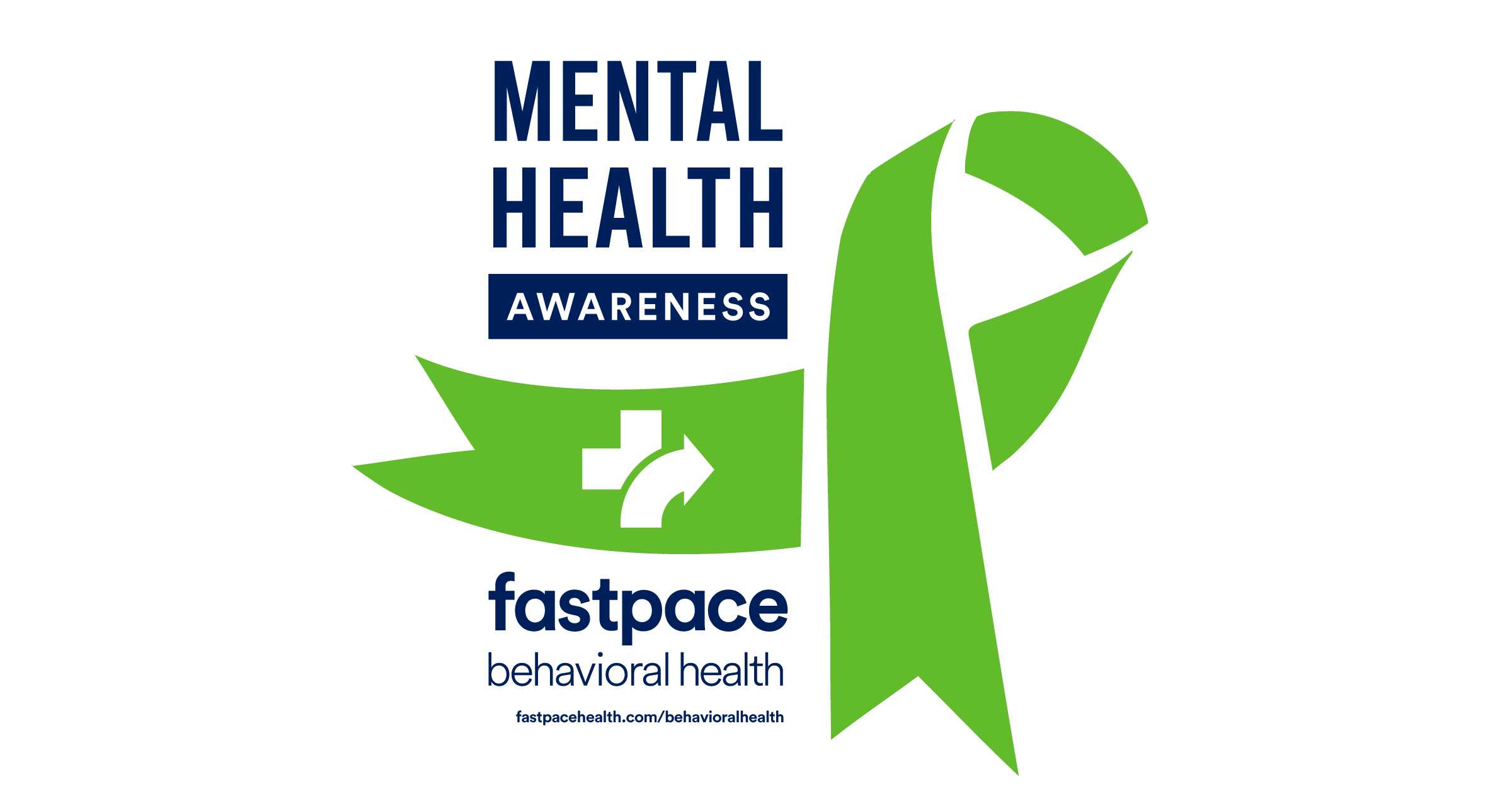
Mental Health Matters: Addressing the Stigma in Rural Areas
May is Mental Health Awareness Month, a time to focus on raising awareness and understanding of mental health issues that affect millions of people worldwide. At Fast Pace Health, we recognize the importance of providing accessible and comprehensive healthcare services in the communities we serve, including mental health care. Mental health challenges are often compounded in rural areas, where stigma, access to care, and limited resources can make it difficult for individuals to seek the help they need. This article will review the unique challenges faced in rural communities and highlight the steps Fast Pace Health is taking to help make mental health services more accessible.
Mental health is a critical and often overlooked aspect of well-being, particularly in rural areas where people may face unique challenges. The stigma surrounding mental health can create barriers to accessing care and receiving support, further exacerbating the problem.
Understanding the Mental Health Stigma in Rural Areas
Mental health stigma is a significant barrier to seeking help and treatment. In rural communities, this stigma can be amplified due to several factors:
- Lack of anonymity: In small communities, everyone tends to know one another. People may fear being judged or gossiped about if they seek mental health services. This fear of being labeled as “mentally ill” can deter individuals from pursuing the help they need.
- Cultural beliefs, values, and attitudes: In some rural communities, there may be a prevailing belief that mental health issues should be handled privately or within the family. This mindset can further discourage people from seeking professional help. In some cases, mental health issues may be attributed to supernatural causes or perceived as personal weaknesses, which can reinforce stigma.
- Limited mental health literacy: Lack of understanding and education around mental health issues can perpetuate myths and misconceptions. This can lead to negative attitudes towards those struggling with mental health challenges and create barriers to treatment.
- Limited access to mental health resources: Rural areas often have fewer mental health resources available, such as psychiatric nurse practitioners, therapists, counselors, and support groups. This lack of resources can create additional barriers to accessing care and contribute to the perception that mental health issues are not a priority in these communities.
The Impact of Mental Health Stigma in Rural Areas
- Delayed treatment and worsening symptoms: The stigma surrounding mental health can deter individuals from seeking help, leading to delayed treatment and potentially worsening symptoms. Early intervention is crucial in treating many mental health conditions, and delays can result in more severe and long-lasting consequences.
- Social isolation and loneliness: Individuals experiencing mental health issues in rural areas may feel isolated and lonely due to the stigma and lack of understanding from their community. This can compound their mental health challenges, as social support is essential in promoting well-being and recovery.
- Increased risk of substance abuse: In some cases, individuals struggling with mental health issues may turn to substances such as alcohol or drugs to cope with their feelings. The stigma and lack of available resources in rural areas can increase the risk of substance abuse, further exacerbating mental health challenges.
Nikita Duke, Director of Behavioral Health at Fast Pace Health, addresses the challenges of the stigma. “Just because you can’t see it does not mean it doesn’t exist. There are many people walking around with invisible scars. The Fast Pace Behavioral Health Team wants to help break down barriers of stigma and accessibility to provide quality care to those needing mental health resources.”
Improving Access to Mental Health Care in Rural Areas
At Fast Pace Health, we are committed to addressing these barriers and improving access to mental health care in rural areas. Here’s how:
- Integrating mental health services with urgent care and primary care: By offering mental health services alongside urgent care and primary care, we aim to normalize mental health care and reduce the stigma associated with seeking help. Integrating mental health care into existing services also allows for more comprehensive, patient-centered care.
- Expanding mental health care via telehealth services: Telehealth has the potential to revolutionize mental health care in rural areas. By providing remote access to mental health professionals, patients can receive the care they need without having to travel long distances or worry about being seen in their small community. Fast Pace Health is dedicated to expanding our telehealth services, ensuring that our patients can access mental health care from the comfort of their own homes.
- As an organization, Fast Pace Health was created for rural communities. These communities have historically struggled to find support for behavioral health needs. Why? Because some communities are located far away from clinics, requiring long drive times and hours away from work for patients. Communities may lack a local practitioner who specializes in behavioral health, or who is able to provide culturally appropriate care. Clinics may also have limited medical personnel, leading to difficulty in scheduling timely appointments.
- Providing ongoing education and training: Fast Pace Health is committed to ensuring that our staff is well-equipped to provide the best care possible. We offer ongoing education and training on mental health topics, ensuring that our team is knowledgeable and prepared to address the unique needs of patients in rural areas.
As we observe Mental Health Awareness Month this May, it’s essential to remember that mental health is just as important as physical health. The challenges faced by rural communities are not insurmountable, but they do require concerted effort and collaboration from healthcare providers, community leaders, and individuals.
At Fast Pace Health, we are dedicated to doing our part in making mental health care accessible and stigma-free in rural areas. We encourage everyone to join us in this effort by educating themselves about mental health issues, talking openly about mental health with friends and family, and supporting local organizations that promote mental wellness.
If you would like to make a virtual appointment for behavioral health services, simply click “Behavioral Health” on our website. From there, register as a new patient and our behavioral health team will help set you up with an appointment. Our vision is to make these services more accessible than ever before.
If you are experiencing a crisis or emergency, please call 911. Help is also available from the National Suicide Prevention Lifeline at www.988lifeline.org or by calling or texting 988.
Related Resources


